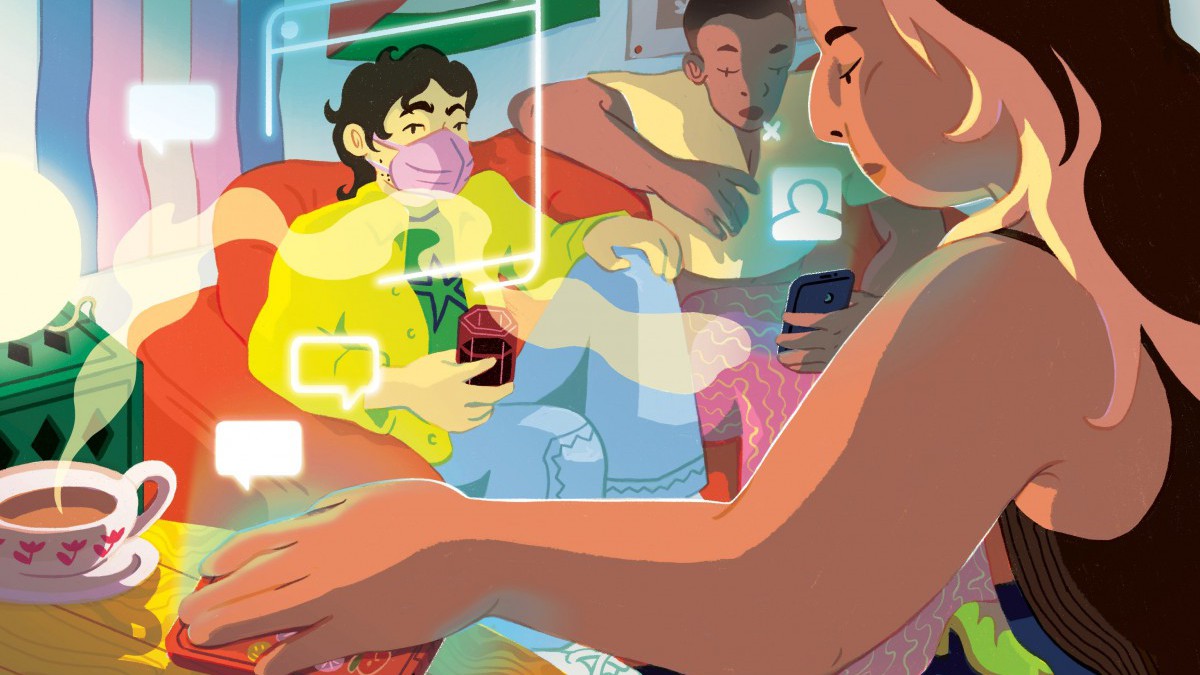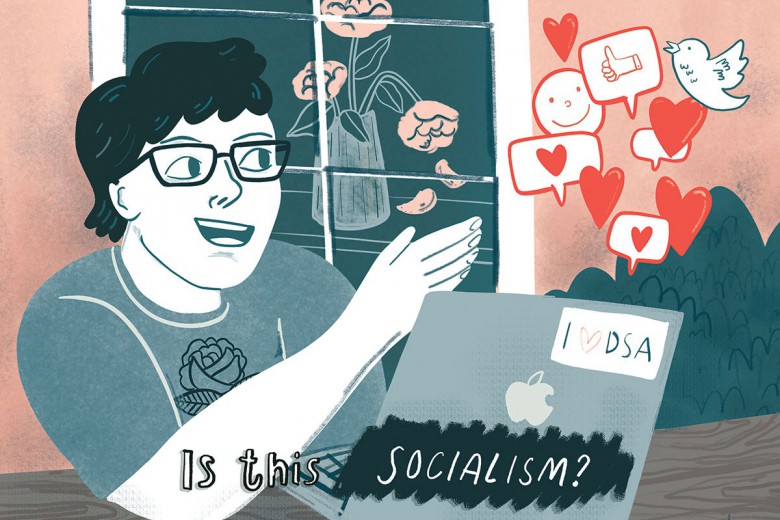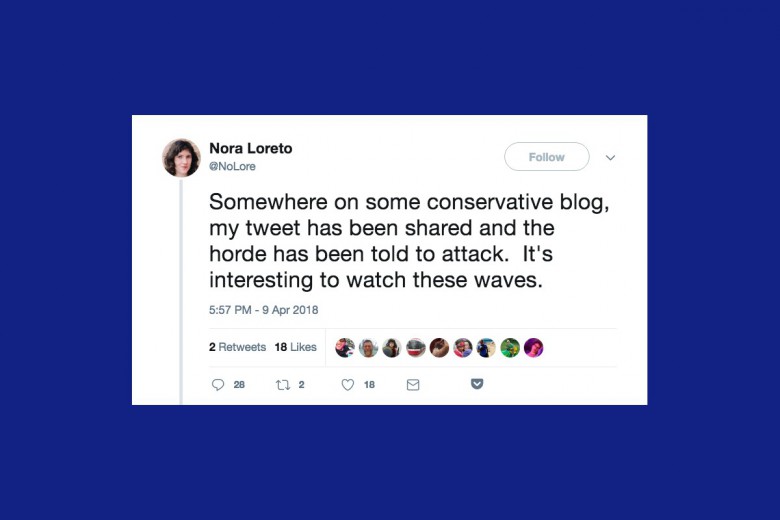Facebook revolutionized my social life when I joined it in 2008 in my first year of high school. The social network enabled me to befriend the majority of my graduating class at the press of a button (and even to remain in touch with some of them to this day), despite how introverted and cocooned a social butterfly I was – simultaneously eager and terrified to break free of the first of many closets. A decade later, it helped me come out as trans through a post on my timeline.
As a company that, in 2024 alone, made over 96 per cent of its revenue through ads tailored to engage and psychologically trigger users based on data from their online activities, Meta has provided little more than a platform, a context in which to develop relationships and express personal revelations.
These days, I long instead for a life without any form of social media to suck away my time and energy. I had been wrong: Facebook didn’t revolutionize anything. It simply beat the market and became a monopoly service through encouraging its users to depend on it for the basic human need to connect with their communities. As a company that, in 2024 alone, made over 96 per cent of its revenue through ads tailored to engage and psychologically trigger users based on data from their online activities, Meta has provided little more than a platform, a context in which to develop relationships and express personal revelations.
Though I felt closer to my peers in high school through friending them and lurking on their profiles, none of us could have anticipated the trade-offs we made at that time in ceding our data and attention to the network. As an adult, I’ve met and made virtually all of my friends in person, at queer community events, writers retreats, and in university, and only afterward used one of these platforms to message them. Yet despite deleting all social media apps from my phone and blocking every oppressive or intrusive ad that scrolls across my feed in the web browser versions, I continue to regret how many hours I waste on these platforms.
Addiction, however, offers a reductive lens through which to address the ongoing threat social media platforms pose to societal cohesion and democracies across Turtle Island and beyond. Dramatized documentaries like 2020’s The Social Dilemma tend to sensationalize technology dependency without providing the necessary nuance to engage empathetically with users on their own terms. Based on U.S. president Donald Trump’s recent approach to TikTok, I worry that blanket solutions to social media dependency – especially, as seen in TikTok’s case, when platforms undermine nationalist borders and monopolies – would approach the issue as a false dilemma, with governments either banning platforms outright or weaponizing them to further surveil and criminalize users. Even employing a mixture of these “solutions” could pose greater risks than a more moderate approach focused on reducing the harms incurred by their use.
Meta’s decision in January 2025 to suspend its fact-checking program and restrictions on speech regarding immigration and gender identity seems to only further confirm how determined the company is to keep its user base raptly ensnared in self-perpetuating vicious cycles of misinformation and echo chambers that escalate users’ mutual distrust. Through interviewing other marginalized writers and activists for this article, however, Meta’s hold over my life has felt more and more fragile as I move away from pathologizing my use of its products and actively attempt to reduce their harms to my relationships and communities.
One writer whose words have guided my new approach to social media harm reduction is Katherine Cross. In 2024, Cross published Log Off: Why Posting and Politics (Almost) Never Mix, a long essay of her observations and conclusions drawn from witnessing numerous failures to organize grassroots movements among trans and other marginalized groups on social media due to the various platforms’ de facto enabling of patterns of lateral violence and intra-community conflicts to increase user engagement. Cross comprehensively weighs the past (and remaining few) benefits of social media against the harms in measured prose that stands out in a sea of reductive false dilemmas others have provided on the subject. As marginalized users have fled Meta and X (formerly Twitter) for decentralized options like Mastodon and Bluesky, Cross highlights the repetition of harm-escalating behaviours across even these emerging spaces. Her “trans women-led Mastodon server collapsed under a tsunami of drama set off by the transfer of years-old beefs” from other platforms, while she felt that much of Bluesky’s usage patterns quickly began to resemble X’s “flair for unnecessary theatrics, exaggerations, distortions, and disinformation.”
Log Off was the third book released by LittlePuss Press, an independent publisher operated by authors Casey Plett and Cat Fitzpatrick. Shortly after publication, I spoke with Plett about her experience of editing Log Off, and how she learned from Cross to re-envision her own relationship with social media.
Instead, [Karasik has] refocused on asking themselves, “what are the sort of collective spaces where I feel like I can actually be effective” at this time?
Plett explains that her attitude to these platforms now boils down to asking fundamental questions: “When I use social media, what exactly, not vaguely, do I want out of it? What exactly am I hoping it can achieve? And am I only using it for those exact purposes?” I related to Plett over our similar choices to revert to patterns of social media use that mirror how we used it when we first adopted it in the 2000s.
“Pre-algorithm […] I felt like my interactions [were] much more intentional,” Plett says. “I would get home, I would purposely go to [LiveJournal, an early blogging platform], and then I would only see the people I had explicitly chosen to interact with. […] When I was off the computer, LiveJournal wasn’t following me around in my hand.” Plett’s approach to new social media platforms may seem basic to some, but I find it aspirational. For example, Plett accesses Bluesky only on her laptop, and has all notifications turned off. “It feels kind of healthier […] as opposed to the days when Twitter was on my phone and […] jacked into my brain.”
In Log Off, Cross compellingly uses the metaphor of road design to illustrate how users would benefit from systemic platform changes similar to traffic-calming strategies, like speed bumps, to greatly reduce car accidents and pedestrian deaths. Meanwhile, like many “North American roads, social media is designed in a way that agitates, rather than calms, its traffic. It leans into, rather than away from, the augmented reality aspects of computer use – tricking us into believing we’re somewhere other than reality.”
Likewise, Plett compares her ideal social media user experience to a “local bar […] great to be able to pop in, see who’s there […] and then leave what’s inside to go home.” Extending the metaphor, Plett says: “You don’t want the bar to come to your house.” Though Meta and other companies appear unwilling to accommodate systemic changes that would reduce harm to their users at the expense of engagement (and the associated ad revenue), the boundary-setting strategies Plett and Cross encourage are useful entry points into using harm reduction principles online in general.
I also spoke with Daniel Sarah Karasik, managing editor at Midnight Sun, a magazine of “socialist strategy, analysis, and culture.” Like Plett and Cross, Karasik has chosen to reduce their social media usage to minimize the harm they experience on the platforms. Instead, they’ve refocused on asking themselves, “what are the sort of collective spaces where I feel like I can actually be effective” at this time? Doing so has enabled them to concentrate their capacity on specific movements and fights that support their communities. “One of the key ways that [I’ve engaged] with social media […] in the past number of years,” Karasik says, “has been […] to find community […] with those who believe the [COVID-19] pandemic is ongoing and are interested in sharing knowledge, sharing data, in some cases, and [working] against isolation that way.”
If our ability to connect with other users of our choice, and to take and use our data from one platform to another were asserted in regulatory frameworks and accessible in our day-to-day use of these platforms, what would the Web look like?
Speaking further on their use of harm reduction on these platforms, Karasik says, “the kind of principle that has long struck me as helpful when [navigating] social media, is never to take it as an end in itself, always to treat it as a tool, and always be kind of recalibrating the uses and the effectiveness of that tool in relation to shifting goals and shifting relations of forces.” Karasik’s suggestions echo those I’ve read from activists who spoke out against Meta’s moves against fact-checking and restricting hate speech. Writer adrienne maree brown acknowledged the limits of social media strikes for those who depend on Facebook and Instagram to access information about global events and maintain established connections with peers, but also stressed the benefit of taking intentional breaks from Mark Zuckerberg and Elon Musk’s platforms, “even if we can’t make the full leap [to Bluesky].” If users can’t leave these spaces without losing access to some of their communities, “can you shift who you follow, your ad content, [and] social media instigated spending?” One question posed by trans Palestinian writer Yaffa sticks with me as well: before you leave Instagram, consider “who will have to do the labor that you're leaving behind?”
Despite my new commitment to reducing the harms of social media on my life and relationships, I still feel consumed by apprehension over the future potential ways Meta and its competitors may further worsen their users’ experiences. Trump and other conservative politicians around the world continue to cozy up to and defend these companies’ rights to extract value from users and their data. Meta reported over $46 billion in advertising revenue in the final three months of 2024 alone, an $8 billion increase from the same quarter in the previous year. The company’s decision in 2023 to block all content from Canadian news media only further cemented the pattern that author Cory Doctorow calls enshittification – also referred to as crapification.
Doctorow coined the term in November 2022 to summarize the process through which digital platforms prioritize profit at the expense of compromising their users’ experiences. In his original blog post, Doctorow took Amazon to task for its monopoly and monopsony (control over sellers) in the global retail market, and suggested a solution to the platform’s stranglehold: adversarial interoperability – the ability to freely transfer data between different platforms, even those owned by competitors. What if you could add someone as a friend on Facebook and then have the platform itself automatically transfer your connection to another social network if you no longer wished to use Meta’s platform? Expanding on his argument in an article for Wired in January 2023, Doctorow analyzed how enshittification worsens the user experience of social media from X to TikTok, and advocated “that networks should be designed so that willing speakers’ messages would be delivered to willing listeners’ end-points as quickly and reliably as they could be.”
Doctorow’s argument reminds me of how easy Facebook felt to use when I first opened my account, with little to no ads or suggested posts from strangers impeding access to my friends’ posts. If our ability to connect with other users of our choice, and to take and use our data from one platform to another were asserted in regulatory frameworks and accessible in our day-to-day use of these platforms, what would the Web look like? Would it provide the calming strategies Cross so effectively advocates for and reduce the harms which Karasik, Plett, and so many other marginalized users wish to avoid?
I began writing this article prior to Trump’s re-election, and if Pierre Poilievre becomes prime minister of so-called Canada in 2025, I worry that social media’s enshittification will hasten ever quicker and be used to sow further societal discord and violence.
And yet, thinking back to Cross’s meditative words, I still want to ground myself in the smaller, everyday practices of harm reduction that aren’t just about trying to find the theoretical or rhetorical framework that will fix everything about social media platforms. Trying to find the right “answer” to exploitation and oppression has never solved any other fight for social justice. You can’t find the perfect words to change the minds of the most determined fascists. Likewise, there may not be the perfect formula for a truly ethical and collectively supportive social media platform. The issues are in many ways a feature, not a bug, of the concept under capitalism and all the other systems of oppression and marginalization that predated social media platforms and are amplified by them.
Karasik remains optimistic. “I think I still find social media valuable […] in the context of a society or cities where there just aren't that many structured spaces, or that many organized spaces to have those sorts of lightly mediated encounters with people who [you] have a lot in common with.”
Early in Log Off, Cross reminds her readers that they should not “mistake coercion for choice. We use the tools available to us to socialize and organize and simply survive.” But as she notes, “Not every tool is indispensable.”
This piece was produced with the generous support of the Canadian Race Relations Foundation's Media Fellowships Program.







